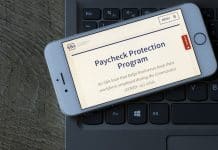
Are you thinking about getting a personal loan but not sure if it’s the right move for you? This article will help you figure it out. We’ll talk about what makes you a good candidate for a personal loan, like having a strong credit score, steady income, and a healthy debt-to-income ratio (DTI). We’ll explain why these things matter to lenders and how they affect your chances of getting a loan. Also, we’ll dive into the differences between secured and unsecured loans, explaining what they are and how they work. This way, you can make an informed decision about whether a personal loan fits your needs and how to choose the right one for your situation.
Can a Personal Loan Help You?
Whether or not you should consider a personal loan depends on a bunch of factors. Some important ones that would make you a good personal loan candidate include your:
- Credit Score
- Income/Employment
- DTI
As always, consider talking to a professional as well to help you understand financing options for your situation!
Understanding Your Credit Score for Personal Loan Approval
Your credit score is a critical factor that lenders consider when you apply for a personal loan. This three-digit number is like a financial report card, summarizing your history with past debts and predicting how likely you are to repay new loans.
Payment history carries the most weight, making up 35% of your FICO score. Lenders look at this because it tells them if you’ve paid previous loans on time. Missed or late payments can be red flags, signaling potential risk.
To maintain a good credit score, consistently paying bills before their due date is crucial. A track record of timely payments reassures lenders that they’re not taking undue risks by extending credit to you. If your payment history isn’t spotless, don’t worry—over time and with regular positive behavior, its impact on your overall score will diminish.
When considering personal loan approval, understand that each lender has different criteria; however, all evaluate your ability to manage debt responsibly based on this key aspect of your financial profile.
The Importance of Income and Employment Verification
Lenders take a close look at your income and job stability before they hand over any cash. They’re not just being nosy; they need to be confident you can pay back that loan. To get this done, you’ll have to show them the money – literally.
So what’s on the list? Expect lenders to ask for pay stubs, tax returns, bank statements, or 1099 forms. These aren’t just paper formalities; these documents paint a picture of your financial life. Pay stubs are like snapshots of your earnings while tax returns tell a longer story about your finances over time.
Bank statements give insight into how you manage cash flow from month-to-month—essential intel for lenders trying to understand risk. And if you’re self-employed or have other sources of income without regular paychecks, those 1099 forms become key evidence in proving that yes, indeed there is an income stream feeding into your account.
How Debt-to-Income Ratio Affects Loan Eligibility
Your debt-to-income ratio (DTI) plays a big role in the eyes of lenders when you apply for a personal loan. This number, which represents your monthly debt payments divided by your gross monthly income, gives lenders insight into how much more debt you can handle. It’s clear-cut: The lower your DTI, the less risky you appear to potential creditors.
Lenders often look for a DTI that sits below 36%—a benchmark indicating that borrowers are not overly encumbered by existing debts and thus have room to take on new financial obligations without undue stress. Yet it’s worth noting that this is not just about appeasing lenders; maintaining a low DTI also benefits you as it suggests better control over finances and reduces the risk of overextending yourself financially.
A favorable balance between what you owe and what you earn may improve not only chances for loan approval but potentially secure more favorable terms too. To assess where your own finances stand before approaching lenders, start by calculating your current DTI. Knowing this figure positions you strategically during negotiations—it’s empowering data at its finest.
Choosing Between Secured and Unsecured Personal Loans
When it comes to personal loans, understanding the difference between secured and unsecured options is essential. A secured loan often needs collateral—like a house or car—which serves as a safety net for lenders should you default on payments. This security tends to bring about lower interest rates compared to their counterpart.
Secured Loans Explained
A secured loan is a type of loan where you use something valuable you own as a guarantee. This could be your house, car, etc. If you can’t pay back the loan, the lender can take this valuable item. Because there’s less risk for the lender, they usually offer lower interest rates for these loans. The kind of valuable item you use can affect how much you can borrow and how much interest you’ll pay
Unsecured Loans and Their Details
An unsecured loan doesn’t use your things like a house or car as a guarantee. Instead, it depends on things like your credit score, which is riskier for the lender. Because of this risk, these loans usually have higher interest rates, but you don’t risk losing your property if you can’t pay.
Choosing between a secured and an unsecured loan isn’t just about what you own, but also how comfortable you are with the idea of using your property to back a loan. Each person’s situation is different, so there’s no one-size-fits-all best choice. It’s important to understand the details of each loan type, like the fees and risks, to make a choice that’s right for you.
Conclusion
In conclusion, deciding whether a personal loan is right for you comes down to understanding your financial situation and the type of loan that best suits your needs. Remember, your credit score, income, and debt-to-income ratio are key factors that lenders look at. They help determine not only if you can get a loan, but also the terms of the loan. It’s also important to understand the difference between secured and unsecured loans. Secured loans often have lower interest rates but require something valuable as collateral, while unsecured loans are based on your creditworthiness and may have higher rates but don’t put your property at risk.
Whatever decision you make, it should be based on a clear understanding of your financial health and the responsibilities that come with taking out a loan. Take the time to assess your finances, consider the risks and benefits of each loan type, and choose the one that aligns best with your current situation and future goals. Remember, a loan is a tool to help you achieve your financial objectives, but it needs to be managed wisely.


















